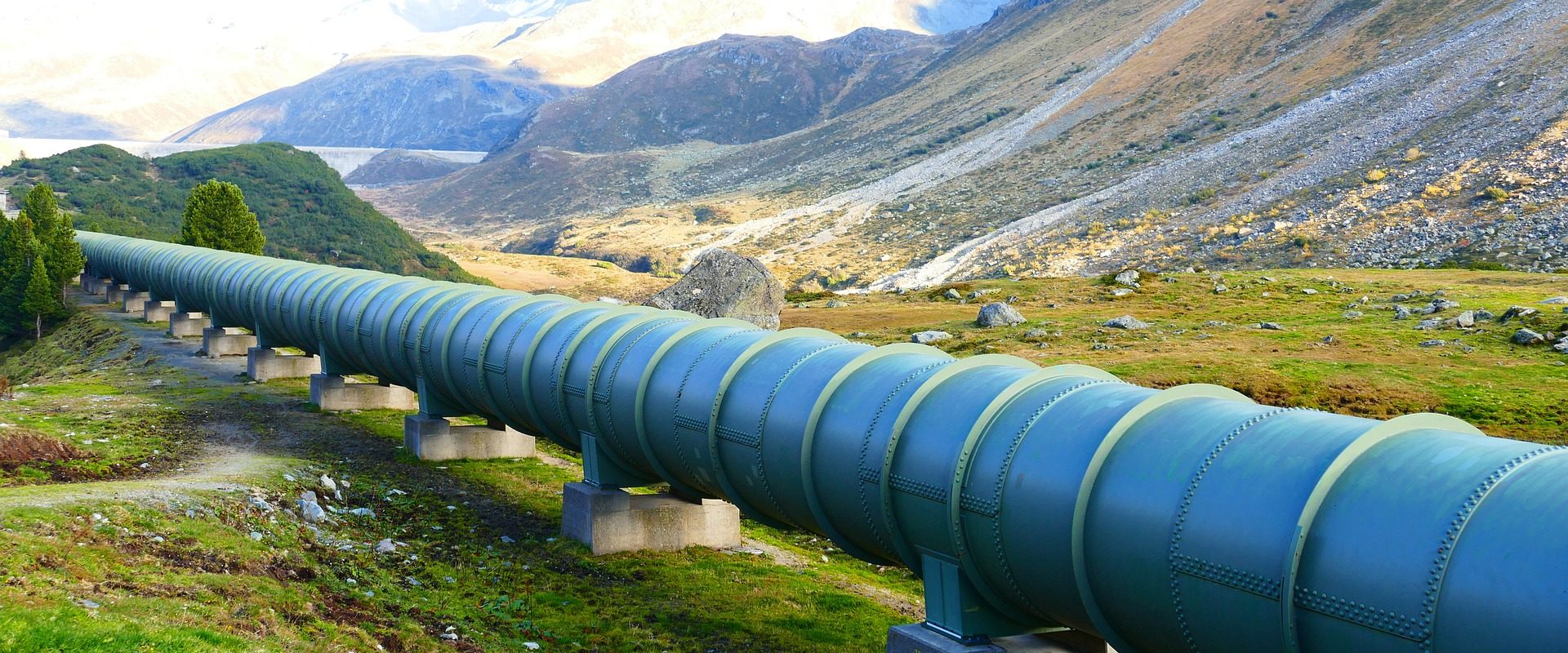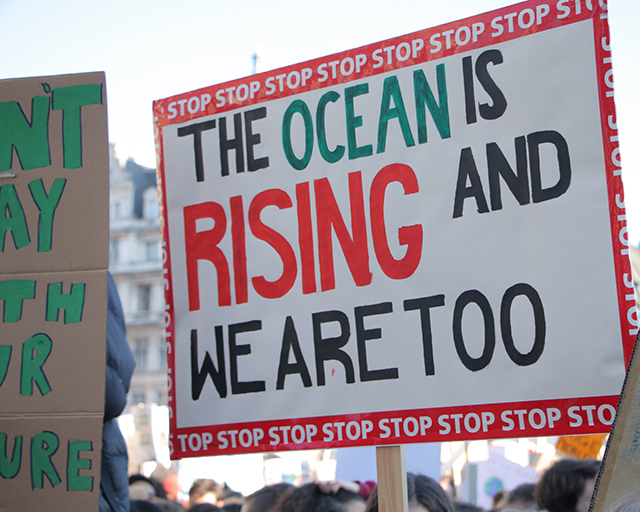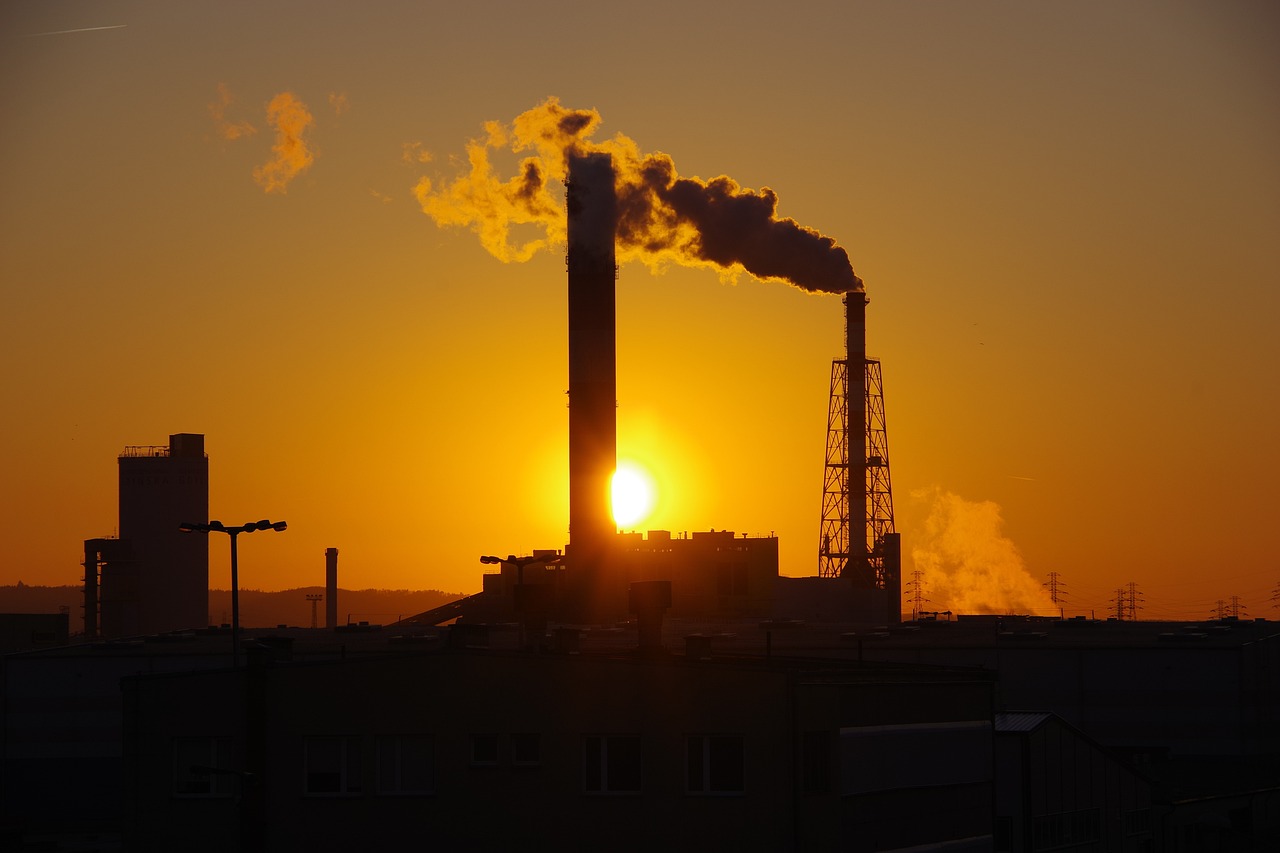The recent media circus around the Nature Restoration Law approved last week by the European Parliament (which has been rendered essentially harmless in its concrete effects) is intended to conceal the EU’s real objectives: the revival of a ‘green’ protectionism, paid for by workers and their families.
The trend towards protectionism and the clash between imperialist blocs is expressing itself not only in military conflicts and trade wars, but also in competing policies adopted by various countries over the issue of climate change.
On one side there is China, which holds a huge slice of the raw materials needed to produce so-called ‘green’ technologies, from the batteries in electric cars to solar panels. On the other hand, there is the USA, which has passed the IRA (Inflation Reduction Act), a package of incentives and public subsidies worth hundreds of billions of dollars, which is being passed off as a plan to combat global warming. In actual fact, however, it provides for brazenly protectionist measures in support of American industries against Chinese and European competition.
In the middle, squeezed between two giants, is the European Union, which is in turn attempting to carve out a slice of the market through protectionist policies, but which has neither the raw materials of China nor the financial means of the USA.
On account of this weakness, the European capitalist class is determined to maintain its profit margins by making the working class and the poor pay the cost of the climate crisis. A central aspect of this is the European market for CO2 quotas: the Emission Trading System (ETS), which is a mechanism for buying and selling permits to emit greenhouse gases.
‘Green’ protectionism
 When available renewable sources proved utterly insufficient to replace Russian gas, European governments rushed to hoard gas and oil from other countries / Image: LoggaWiggler, Pixabay
When available renewable sources proved utterly insufficient to replace Russian gas, European governments rushed to hoard gas and oil from other countries / Image: LoggaWiggler, Pixabay
Established in 2005, the ETS was a cornerstone of European policy for reducing carbon dioxide emissions. The aim was to put a price on CO2, placing a choice before polluting companies: either reduce polluting emissions or incur increasing costs to pay for emissions in excess of the legally permitted ceiling.
That this system has failed miserably was demonstrated in the energy crisis following the war in Ukraine, when available renewable sources proved utterly insufficient to replace Russian gas, and so all European governments rushed to hoard gas and oil from other countries.
The European Council recently approved a reform of the ETS, with the stated aim of making it more efficient. The reform basically focuses on two points. The first is the carbon border adjustment mechanism (CBAM), which will be phased in from 2025: it is basically a customs duty imposed on products imported from countries where environmental standards are less strict than in Europe (such as the USA and China). Rather than an instrument to protect the environment, the CBAM is a tool to favour European industry and to discourage the relocation of production to other countries. However, since the EU is dependent on imports in the mining and energy sectors, duties could have a boomerang effect, pushing up prices and fuelling inflation, especially in those countries that continue to focus on fossil fuels such as Italy, which aspires to become the ‘European gas hub’.
Workers always pay
The second crucial element of the reform concerns a new carbon trading system for private road transport and building emissions, starting in 2027 (the so-called ETS II). The methods of payment have yet to be defined, but as far as transport is concerned, the risk is that the additional cost will be passed on directly at the petrol pump: the higher the carbon price per tonne, the higher the increase at the petrol stations will be. The same levies will apply to buildings, where electricity suppliers will have to offset CO2 emissions through ETS certificates and then recover the costs incurred by raising their bills.
Another proposal on the table in the European Council envisages outlawing gas boilers (the vast majority of boilers being gas boilers) by 2035. Of course, heating buildings with less polluting technologies should be a fundamental aim… too bad that it will have to be working families with their meagre salaries that will bear the cost of replacing old systems. The European ‘green homes’ regulation too, which requires the energy class of buildings to be changed within the next few years, risks becoming an unsustainable cost for millions of workers.
On one final side note: the new ETS reform also affects the ship and aircraft sector, which until now has benefited from free CO2 allowances. But from 2026, they will have to pay for their emissions, with a consequent increase in ticket prices. But certain types of smaller boats and aircraft will be exempt, so the super-rich owners of yachts and private jets can rest easy!
A class response
 We must fight to make the energy multinationals that caused the climate crisis pay, by expropriating them / Image: Socialist Appeal
We must fight to make the energy multinationals that caused the climate crisis pay, by expropriating them / Image: Socialist Appeal
The discriminatory nature of these regulations is obvious, but they contain a further negative consequence: in the eyes of large sections of the working class, they have the potential to make “combating climate change” synonymous with higher prices for petrol, for bills, for renovating one’s apartment block, for travelling, etc. This will add grist to the mill of those reactionary forces that deny the problem of global warming and propose to march ahead with fossil fuels, to the delight of the big oil multinationals.
The environmental question is extremely serious. The capitalist mode of production risks devastating our planet irreparably. This is precisely why the solution cannot be left to green-washing capitalist policies like those of the European Union, which will drain the working class, while big business continues to make record profits. We must fight for the exact opposite: to make the energy multinationals that caused the climate crisis pay for the crisis by expropriating them and putting their resources at the disposal of society, forcing them to bear the full costs of a real ecological transition.
The fight for a planned, rational, worker-led, internationally coordinated economy that puts environmental protection at the heart of the entire production process becomes more necessary every day.

